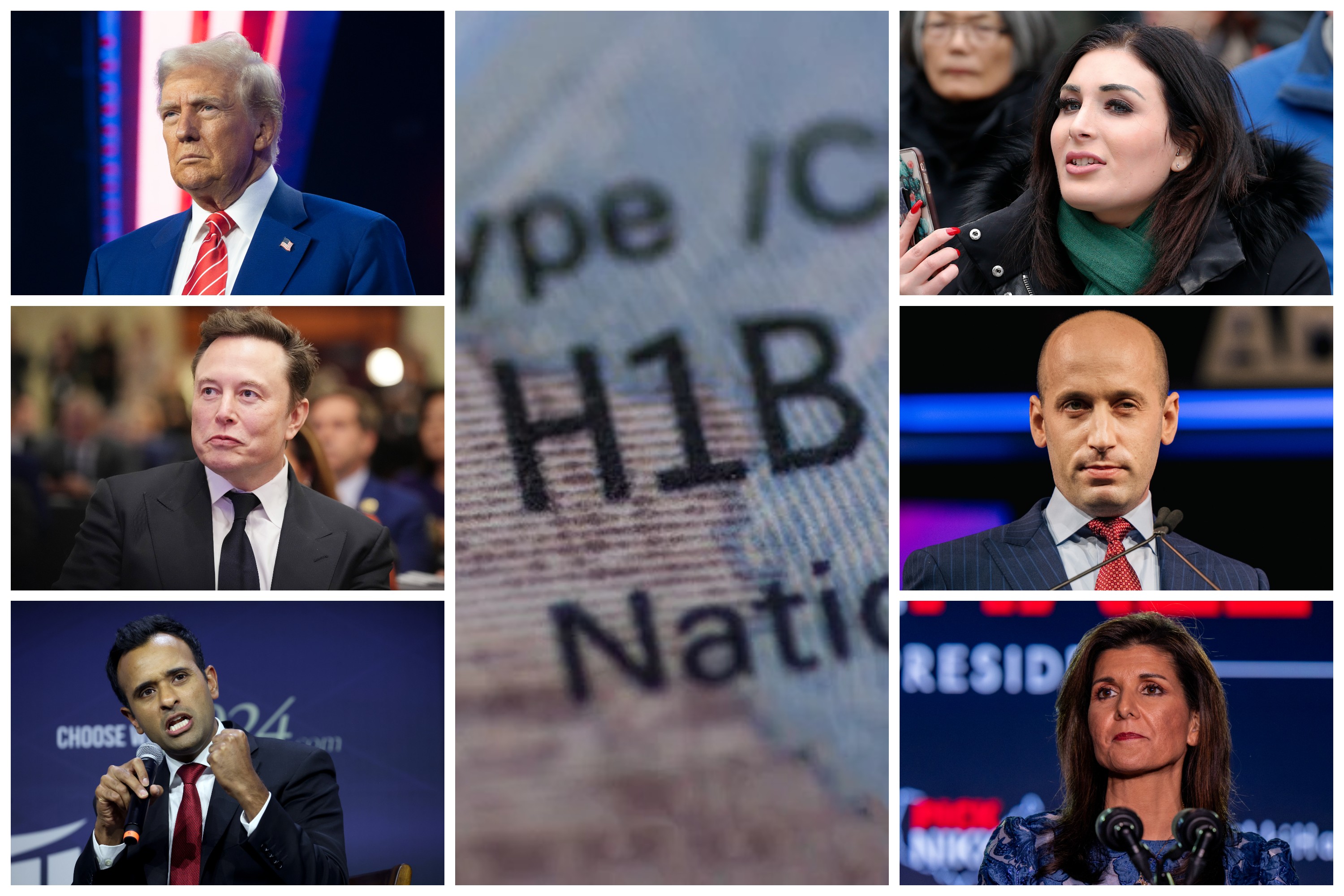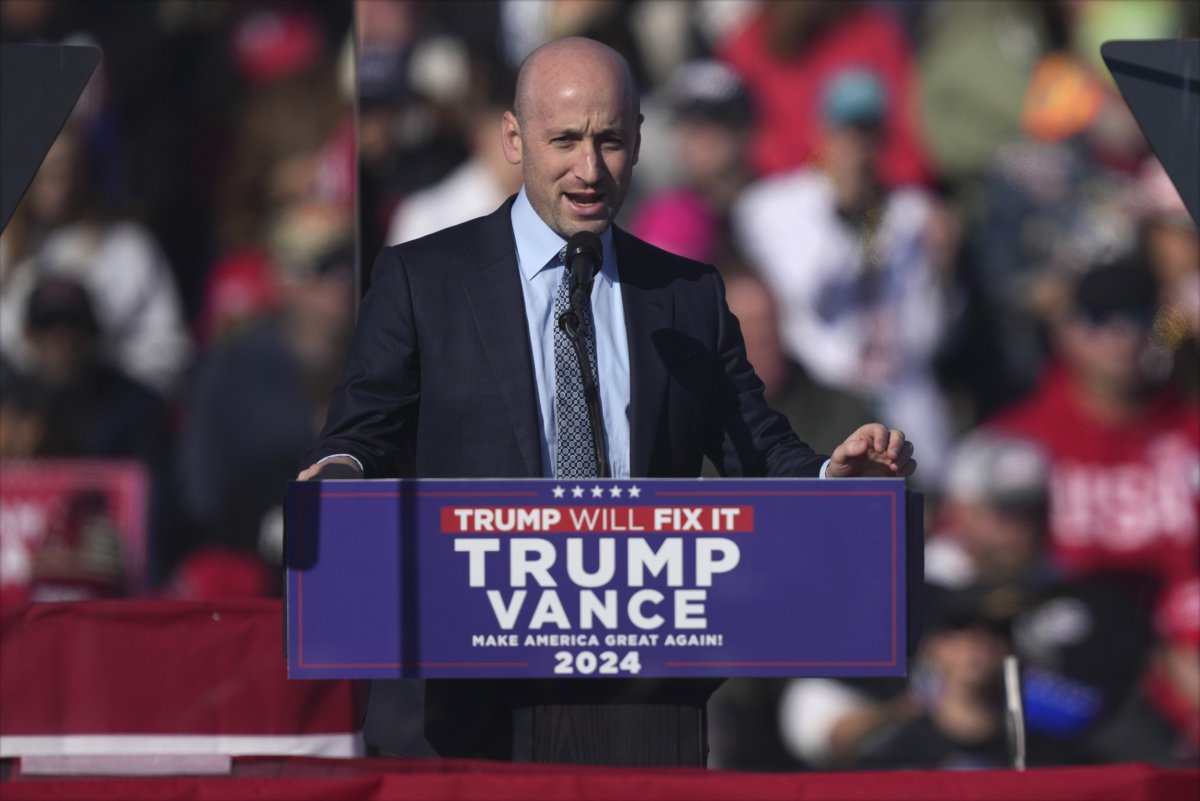Tech
Right-wing warfare pits Big Tech against MAGA over H-1B visas

A heated debate within the Republican Party over “high-skilled” immigrants and H-1B work visas has broken out over this otherwise quiet holiday week, reflecting the deep divisions within both the GOP and the Trump base that turned out in force for him in November.
Elon Musk, backed by tech allies like Vivek Ramaswamy, is finding himself at odds with MAGA true believers who have long pushed for stricter immigration policies, without a carve-out for the so-called high-skilled workers that they argue are taking well-paying jobs from Americans.
Laura Loomer was among those to criticize Sriram Krishnan’s appointment as Trump’s AI policy adviser, calling it “deeply disturbing” (Krishnan is a naturalized American citizen). On X, Loomer expressed concerns that Silicon Valley’s influence on Trump’s administration is driven by a specific interest in H-1B visas, which many global tech companies rely heavily on to staff their workforces.
High-profile voices in Big Tech who have recently become part of Trump’s base of support are arguing, on X and in podcasts, that economic competitiveness is a reason for Trump to allow increased immigration for certain “high skill” workers from countries like India. David Sacks, the South African-American venture capitalist, came to Krishnan’s defense in a Christmas Day post:
“Sriram has been a U.S. citizen for a decade. He’s not “running America.” He’s advising on A.I. policy. He will have no influence over U.S. immigration policy. These attacks have become crude, and not in the holiday spirit. I’m signing off now. Have a merry Christmas,” Sacks wrote on X.
Meanwhile, Musk, the world’s wealthiest man, has benefited from the H-1B program both personally and professionally. He first came to the U.S. on a J-1 academic visa that he says transitioned into an H-1B. Tesla is also among the companies to rely on the program, having hired 724 H-1B workers in 2023.
Getty Images
But MAGA evangelists like Loomer believe Musk’s influence within Trump’s circle serves his own interests. On X, Loomer singled out Musk and his tech allies, including Box CEO Aaron Levie and Paypal co-founder Peter Thiel, suggesting that the new DOGE initiative for government efficiency is just cover for sending funds to Silicon Valley entrepreneurs.
The roiling online debate became more heated on Thursday when Ramaswamy entered the fray with his own lengthy X post arguing that H-1Bs were needed because American “culture” did not prioritize work ethic the way Indian culture does. Indian immigrants received nearly three-quarters of all H1-B visas in 2023, according to USCIS data.
The H-1B visa program allows U.S. companies to employ foreign workers in specialty occupations, particularly in the tech industry. Since Trump was elected last month, discussions about reforming the program have intensified, with some advocating for removing country-specific caps on green cards to address backlogs faced by applicants from countries like India.
Krishnan, Musk, and Ramaswamy support such reforms, arguing that the current system leads to unfair waiting times for qualified applicants. In his viral post on Thursday, Ramaswamy argued that top tech companies prefer hiring foreign-born engineers due to cultural differences, not inherent IQ advantages.
“A culture that celebrates the prom queen over the math olympiad champ, or the jock over the valedictorian, will not produce the best engineers,” Ramaswamy wrote, prompting a strong response from Trump’s former UN ambassador and one-time opponent Nikki Haley.
“There is nothing wrong with American workers or American culture. We should invest in and prioritize Americans, not foreign workers,” she wrote, in what amounted to one of the first big attacks on Ramaswamy and Musk from the right.
While Trump has been vocal about his plans for illegal immigration, he has spent less effort discussing what he plans to do with those who aspire to work in the U.S. legally.

Marc Piasecki/Getty Images
On the campaign trail, he talked about the prospects for legal immigration reform, even suggesting that students who got an advanced degree deserved the opportunity of a green card.
“What I will do is, you graduate from a college, I think you should get automatically, as part of your diploma, a green card to be able to stay in this country,” Trump said.
Dimo Michailov, an immigration attorney, said that Trump’s first term gives a glimpse of what to expect when he retakes power on January 20.
“Not much has been said about ‘legal’ immigration, but if we are to look back at the first Trump term, we should certainly expect changes to the legal immigration system,” Michailov told Newsweek.
But while Silicon Valley leaders advocate for relaxed restrictions on high-skilled immigration to enhance America’s global competitiveness, Trump’s first term took a contradictory approach.
During his 2016 campaign, Trump vowed to create a “big beautiful door” for legal immigration. However, his administration, heavily influenced by his unofficial immigration czar Stephen Miller, worked to quietly put up barriers within the visa and work permit issuance process, according to experts who spoke with Newsweek.
“Some of the things from the first administration were regulations tightening up things like third-party placement, an increase in requests for evidence and denials, higher standards that actually fell in court quite a bit,” said Steven Brown, attorney at the Texas-based immigration law firm Reddy Neumann Brown PC.
Despite this experience in the first term, Mark Krikorian, executive director of the Center for Immigration Studies, which advocates for less immigration, told Newsweek that he believes Trump is not a restrictionist, but instead someone who believes in legal migration and hopes the program receives necessary reform.

Matt Rourke/AP
“I think they can give both sides a fair hearing. One of the problems with H-1B is that the visas don’t always go to the most talented; in other words, the ones employers themselves consider the most valuable,” Krikorian told Newsweek.
The dynamics of the debate have shifted since Trump’s first term. His advisors on immigration now include powerful figures like Musk, who recently demonstrated his newfound influence by blowing up spending negotiations in Congress and nearly causing a government shutdown at Christmas.
Musk’s approach to immigration — effectively, a hardline stance on illegal immigration combined with a liberal view on letting in high-skilled foreign workers — is at odds with the cultural and economic protectionism espoused by those in the MAGA movement, including Miller, who is set to return to the White House with his own restrictionist immigration policies in hand.
How those two will work together — and which ideology wins out in the eyes of the president-elect — is one of the many questions facing the incoming administration.
“Now we also have Elon Musk, who might offer advice that wasn’t there in the first administration,” Krikorian said. “So, this tension is new.”
“I’m really interested to see which side kind of wins that moral compass,” Brown added.










